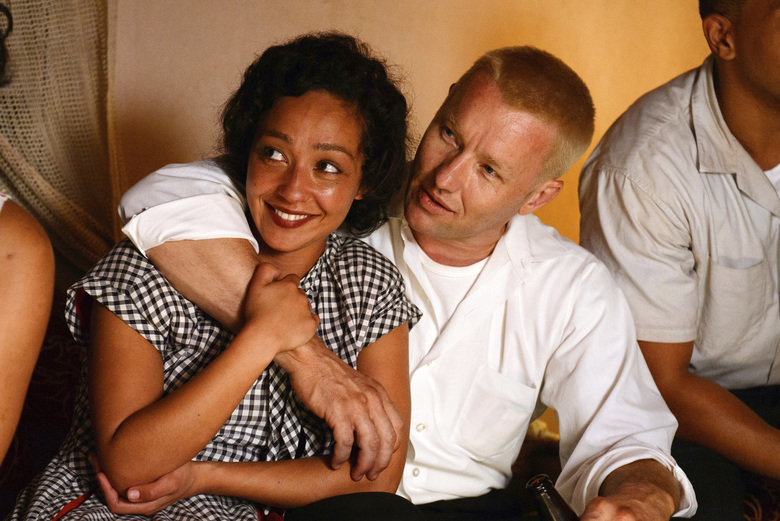
By Lindsey Bahr
AP Film Writer

LOS ANGELES (AP) – “Look at me,” Ruth Negga says in between sniffles. “I’ve only been doing this for two weeks and I’m sick already.”
You wouldn’t know it to see her. The Irish and Ethiopian actress, soon to be known for a star-making performance in the new film “Loving,” looks put-together. But behind the smile and the camera ready stylings, Negga is battling a wicked cold while soldiering her way through a long day media interviews to promote the film. It’s something that won’t likely let up for the next four months either as Hollywood kicks into full blown awards season where “Loving” is expected to be a major contender.
The film, written and directed by Jeff Nichols (“Mud,” “Take Shelter”), is about the real-life couple Richard and Mildred Loving, who, despite yearning for a quiet, simple life, became accidental revolutionaries in their quest to raise a family together in their home state of Virginia.
In the summer of 1958, 10 days after they were married, a local sheriff and his deputies burst into the newlywed’s bedroom at 2 a.m. and arrested them. Richard Loving was white. Mildred Loving was African American and Native American, and their union violated Virginia’s Racial Integrity Act. Over the next nine years, the couple, exiled from the state, fought to get back. Their struggle culminated in the landmark 1967 Supreme Court case Loving v. Virginia, which ruled that laws against interracial marriage were unconstitutional.
For Negga, who plays Mildred, not even a bad cold can diminish how privileged she feels to get to talk about the extraordinary story and her deep appreciation for what this unassuming couple did. Joel Edgerton, who plays the stoic and silent Richard, has a similar take. They’re both happy to have had a chance to be part of something that’s both art and of historical significance. That they’re also being singled out for their performances is almost beside the point.
“In my Australian way of deflecting any of those compliments, I’ll just say that it’s really great for the movie that people are talking about it. It just reflects how important it is and how well made it is,” Edgerton said.
The film was inspired by Nancy Buirski’s 2011 documentary “The Loving Story,” comprised of archival footage of the couple at home, newscasts following pivotal court moments and intimate photos done by Life Magazine photographer Grey Villet. The documentary, available to stream on HBO, proved to be an invaluable resource for Negga and Edgerton too. They were able to study the people they were tasked with portraying and the relationship they’d be emulating.
Edgerton focused in on Richard’s silences – what he might have been thinking, what they meant. He studied his eyes, in particular, which wandered as though he was always “looking for the door and looking for the way out of view of the camera.”
“In a bigger sense, he’s a guy looking for a way out of the whole thing, a way to will everybody to disappear or to find the back door where he can go through and their life can be simple, or the way it used to be,” Edgerton said. “Mildred was the one who got on her tippy toes and looked over the fence and had her eyes on the horizon of some sort of change and reached out about it. She was the leader.”
The heart of the film, however, and its power is in how Richard and Mildred are together.
“It’s quite special what they have. They actually liked each other. They liked being in each other’s company,” said Negga. “There’s no big romance clichés and pastiches and declarations of undying love. It’s very simple. Simple, but intimate and truthful.”
Nichols elevates the ordinary and creates empathy in showing the banalities of their everyday – washing clothes, doing chores, playing and even settling down on the couch to watch television.
“They weren’t people who thought they were special. They didn’t have a calling and they weren’t orators. They didn’t want to be in the limelight. In many ways they’re the every couple. And yet this couple reminds us that everyone has the capability to be extraordinary and to do extraordinary things,” said Negga. “We love Mildred and Richard and we’re so proud of what they achieved. We’re not Americans but we’re world inhabitants. We’re all in it together.”
—
Follow AP Film Writer Lindsey Bahr on Twitter: www.twitter.com/ldbahr



